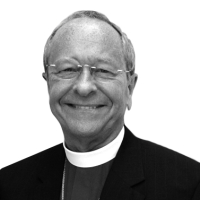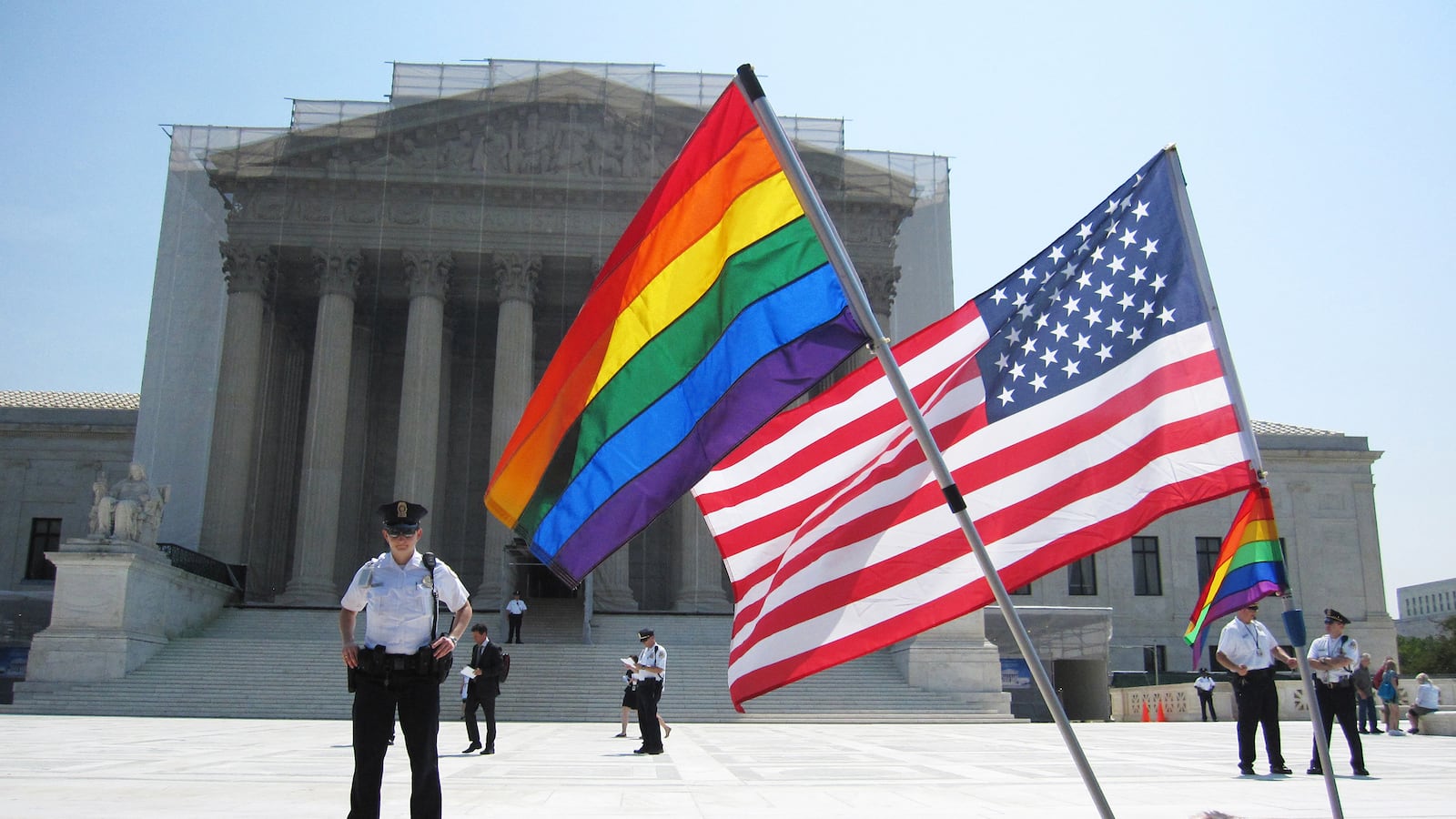If you asked most anyone in America how things were going for gay, lesbian, bisexual, and transgender people, they would probably respond, “Great!” Gay and lesbian people who live in one of the more accepting, urban settings on the East or West Coast might even agree, given that these bastions of liberal thinking have enacted many protections already. Indeed, the struggle for marriage equality for gay and lesbian couples has made great strides, going from a handful of states only a year ago in which gay and lesbian people are able to marry to an astounding 35 states at present. This is amazing progress considering that marriage equality in the first state was achieved scarcely more than a decade ago.
But there is still much work to be done to ensure that gay, lesbian, bisexual, and transgender (LGBT) people are recognized as full citizens of this country with all the rights and protections that citizenship usually bestows. In 14 of those states in which a gay or lesbian person is allowed to marry the person they love, one can get married on Sunday and be fired from his or her job on Monday morning—for the simple reason of being gay, with no employment protection or recourse in the courts.
The Center for American Progress has just released an exhaustive report on the state of LGBT rights in America as they pertain to public accommodation, access to credit, employment protection and the like. “We the People: Why Congress and U.S. States Must Pass Comprehensive LGBT Nondiscrimination Protections” goes on to describe the patchwork quilt of protections that vary depending upon the town or state in which one is living. As the report summarizes: “Today it is legal to fire, refuse housing, or deny service to Americans because of their sexual orientation and gender identity in 29 states. In most states, lesbian, gay, bisexual and transgender, or LGBT, Americans currently lack explicit protections against discrimination in employment, housing, education, credit, and public accommodations. LGBT individuals and families report unacceptable levels of discrimination in the workplace, when seeking goods or services in their community’s places of public accommodation, at school, or when seeking housing. This discrimination leads to disproportionate rates of unemployment, poverty, homelessness, and negative health outcomes for LGBT people and their families.”
These discriminatory practices have real effects on real people, and they go far beyond bakeries refusing to provide wedding cakes for weddings of gay people, based on their “religious” beliefs. Transgender people are likely to receive disproportionately harsh treatment from law enforcement. Homeless LGBT youth (who make up a hugely disproportionate 40 percent share of the youth homeless population) are often separated from their peers by the homeless shelters where they seek refuge, and one Michigan facility even required them to wear orange clothing to identify and separate them from other residents in the shelter.
When average Americans think of gay couples, they usually have in mind two white, gay men, each earning a good salary, with little to worry about beyond where to have brunch on Sunday. The reality is much different. Much more common is the African American lesbian couple in the Deep South raising children at or below the poverty line. A Williams Institute study found that 29 percent of LGBT people “experienced a time in the last year when they did not have enough money to feed themselves or their families.”
The lack of protections from discrimination for LGBT people who are seeking housing (whether to rent or buy) only exacerbates this life of poverty. This is especially true for the 3 million or so LGBT seniors who are 65 or older. And as bad as it might be for gay or lesbian people, the discrimination is markedly worse for transgender people.
Religion is at the center of this debate over explicit protections for LGBT people. Having “lost” the battle against marriage equality (even the most avid opponents of civil marriage for gay or lesbian couples now admit they’ve lost), the conservative Christian Right now seeks to exempt from nondiscrimination legislation anyone who expresses disapproval of LGBT people and their so-called “lifestyles” based on their religious beliefs.
The chapter of “We the People” on “Religious exemptions and LGBT discrimination” (full disclosure: I contributed to this part of the report) lays out the attempts by some religious groups to be allowed the freedom to discriminate and be exempted from any and all laws providing equal protection in housing, public accommodation, and services in the public square. Some have appealed to the federal Religious Freedom Restoration Act (RFRA) and the Supreme Court’s Hobby Lobby case to justify their desire to discriminate on religious grounds. We are likely to see these challenges in the courts in the years to come.
What we need is comprehensive LGBT nondiscrimination legislation at the federal level to relieve this inadequate patchwork of protections. Otherwise, the protections offered to most American citizens will be denied to LGBT American citizens merely based on the ZIP code they happen to live in. That is not how America should work. We are better than that.
One possible way forward is a specific omnibus bill that would guarantee LGBT people the right of redress in the courts when they experience and can prove discrimination. Or, it might be that the existing civil rights legislation outlawing discrimination based on race, gender, or ethnicity be expanded to include sexual orientation and gender identity. Whichever way forward works, it needs to happen, so that “liberty and just for all” actually means “all.” It will not be an easy road, nor will it happen anytime soon. But all fair-minded Americans should get behind this push for real equality and protections in the lives of all Americans.






